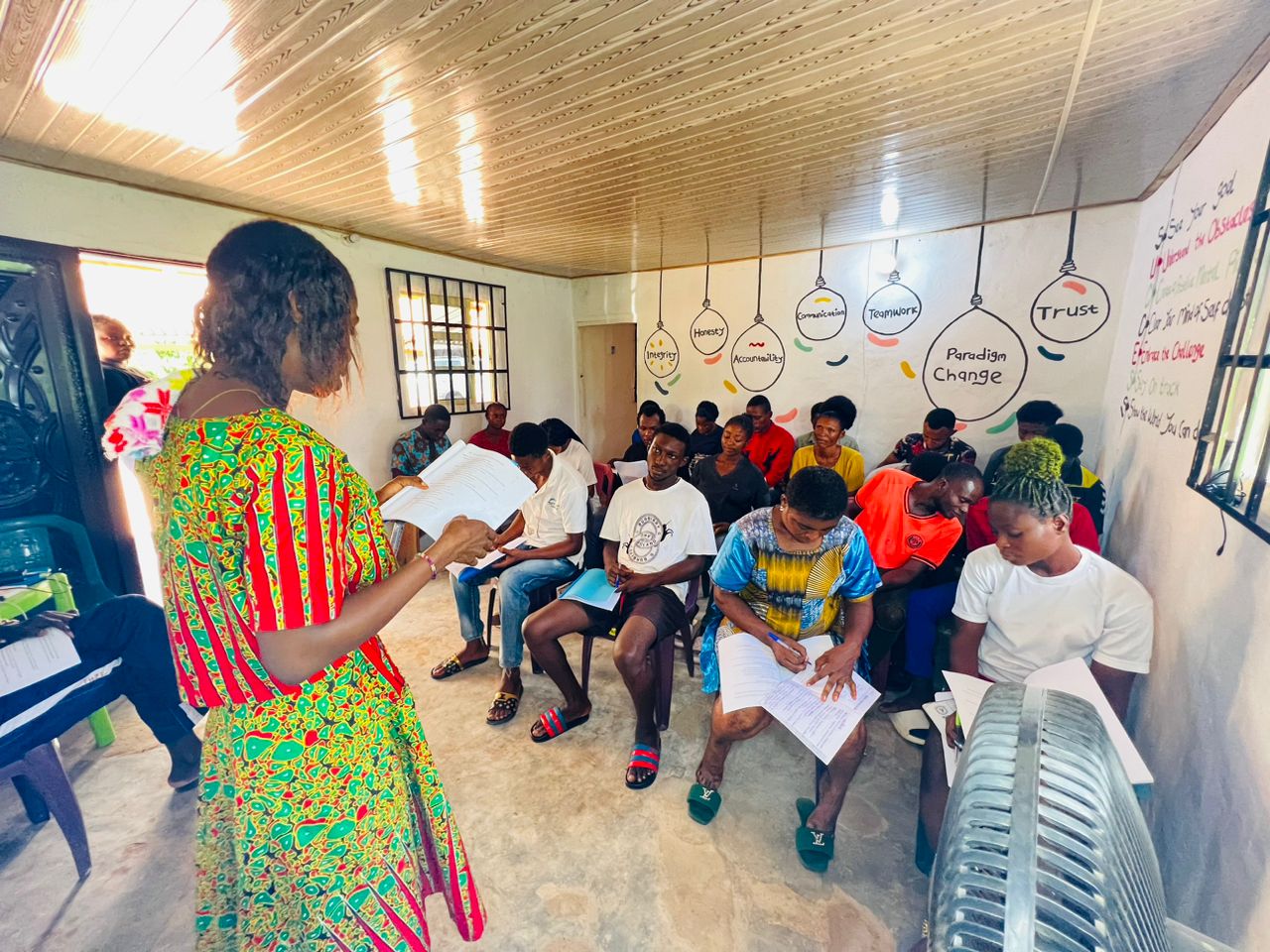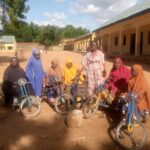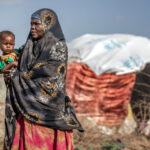While growing up in Agosasa, in Ipokia Local Government Area, near Nigeria’s fluid border with the Benin Republic, Isaac Olushola directly encountered a blend of cultures, stories, and experiences that profoundly influenced his outlook on life. As he commenced his education in Nigeria’s coastal city of Calabar, navigating the journey between Lagos (his residence at the time) and Calabar presented its unique challenges.
“Declaring my hometown always put me under suspicion, and more often than not,” Isaac said. A small bribe was often the unspoken ticket for Isaac to continue his journey. “It was a harsh reality, a glimpse into the twisted fate of survival and compromise in Nigeria.”
Then something happened. In one such journey back from Lagos, Isaac, a then-student of Public Health, shared a bus with some Cameroonian refugees. “The brief conversations we shared opened my eyes to a daunting reality – Cross River State was home to the largest refugee settlement in West Africa.”
Isaac, driven by curiosity and concern, pondered the fate of the refugees—contemplating their lives and what lay ahead for them after parting ways at the bus stop.
Isaac’s fear is not unfounded. Globally, exposure to armed conflict and forced migration has been associated with adverse health consequences. As of 2019, over 70 million people were forcibly displaced worldwide, over 25 million were refugees, and over half were children under 18.
That encounter soon became “the moment of revelation that tilted my academic path toward understanding health disparities and inequities among these communities.”
Another chance at change
So last year, when Isaac was to do his undergraduate thesis- he focused on the prevalence of soil-transmitted helminth infections among school-age children in Adagom, a refugee settlement in Northern Cross River State.
The Adagom refugee settlement hosts refugees fleeing armed conflict between separatist groups and the government in Cameroon.
The conflict has displaced over a million people within Cameroon and forced hundreds of thousands to seek refuge in neighbouring countries, including Nigeria.
According to the UNHCR, as of October 2023, there were over 70,000 Cameroonian refugees in Nigeria, with the majority living in Cross River State. Adagom camp is one of the largest refugee settlements in Cross River State, with over 20,000 residents.
While collecting data in the field, Isaac had conversations about HIV and AIDS with some of the refugees, “and I discovered the knowledge gap, and immediately understood how dangerous it was especially to an already vulnerable group.”
Earlier, Isaa had been selected by the International AIDS Society or IAS, a global association of HIV and AIDS professionals, as one of its eleven young leaders. The young leaders were charged with establishing a digital youth hub for individuals living with and/or working in HIV programming, providing them with accessible resources.
Isaac pitched the idea of a Knowledge to Action Hub or KAH hub to IAS and got a seed grant for the project.
He believed that amid the challenges that the refugees faced, “the need for HIV prevention services in humanitarian settings is more pressing than ever, particularly among young refugees.”
According to UNAIDS, the Joint United Nations Programme on HIV/AIDS, “AIDS is often overlooked in the immediate wake of a disaster because there seem to be more important things to do. However, it is just at this time that AIDS threatens most.”
They also added that “In an emergency, people lose their families, regular sexual partners, possessions and source of income. Family and social ties break down. Prostitution, being one way for people to earn money in exchange for food, will often become established around refugee camps. Condoms — a key means of protection during sex against HIV infection — will almost certainly be lacking,” and it was preventing this that Isaac was interested in. 
A refugee-led intervention for refugees
The Knowledge to action takes a different approach to HIV and AIDS education and prevention. Before entering the camp, Isaac and his team surveyed to determine the exact needs of the community. Then, they did community entry by meeting the community leaders, the settlement chairman and the state emergency management department in charge of the settlement.
Then, the group mapped health centres around the settlement for proper referral in case of any positive cases, and then, from the recommendation of the refugee community leaders, e 36 participants were divided into two cohorts, with each cohort trained for two weeks before they were certified to conduct step-down training.
“The selected trainers got training on HIV prevention, How to use male and female condoms, injecting drugs, how to respond to drug overdoses, PrEP and PEP use, amongst other things,” Isaac said, adding that they were also trained on counselling and communication. The trainers were then handed a comprehensive training manual to guide their training of others.
To help their work, KAH hub renovated a dilapidated building in the settlement, which they use as a physical hub. The hub is furnished with SRHR materials and HIV prevention and harm reduction merchandise like Condoms, PrEP, needles and syringes, etc.
So far, KAH’s 36 trainers are saddled with the responsibility of training five people weekly over 16 weeks, expecting to reach about 1200 young refugees directly through the ripple impact of the 36 trainers.
For refugees like Courage, the opportunity to learn from KAH’s Hub was an eye-opening experience she will never forget.
“I have been able to get knowledge on HIV prevention, counselling and how to counsel people and prevent stigmatization, which is killing so many individuals,” she said.
Today, Courage and other volunteers are inside the Adagom resettlement, campaigning and educating the population on HIV prevention and protection. According to Isaac, this is what he hopes to replicate across refugee and resettlement communities across Africa’s largest democracy.
Isaac Olushola grew up near Nigeria's border with the Benin Republic, experiencing diverse cultures and challenges, including bribery during travels. A pivotal moment occurred while traveling with Cameroonian refugees, realizing the magnitude of the refugee crisis in Cross River State. This encounter redirected his academic focus towards health disparities among refugee communities.
Isaac's undergraduate thesis centered on soil-transmitted helminth infections among children in the Adagom refugee settlement, home to many fleeing the conflict in Cameroon. With over 70,000 Cameroonian refugees in Nigeria, Isaac recognized the urgent need for HIV prevention services, particularly among young refugees.
Supported by a grant from the International AIDS Society, Isaac established the Knowledge to Action Hub (KAH hub) to address HIV prevention in the Adagom settlement. The initiative involved community surveys, training local trainers on HIV prevention and harm reduction, and setting up a physical hub equipped with necessary resources.
The KAH hub aims to train 36 trainers to educate around 1200 young refugees over 16 weeks. The program's impact is already visible, with volunteers like Courage learning about HIV prevention and spreading awareness within the community. Isaac hopes to replicate this model across other refugee settlements in Nigeria.







I just like the helpful information you provide in your articles
Keep up the incredible work! I can’t wait to see what you write next.